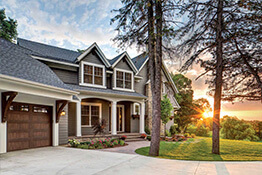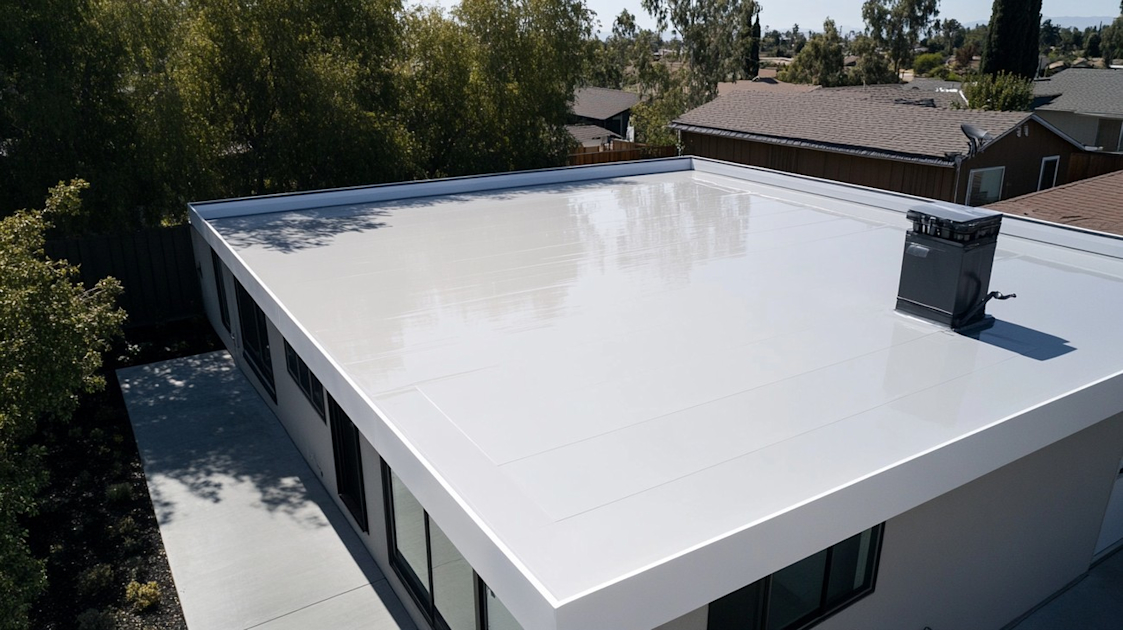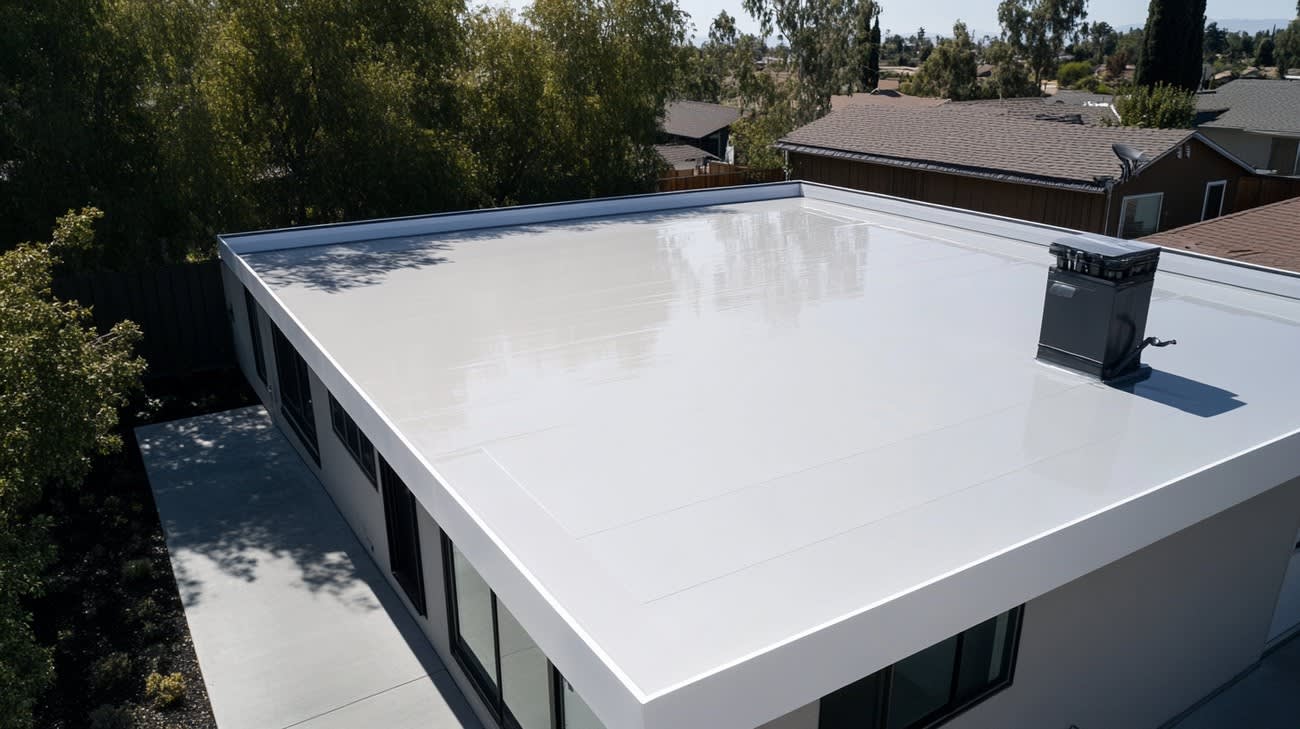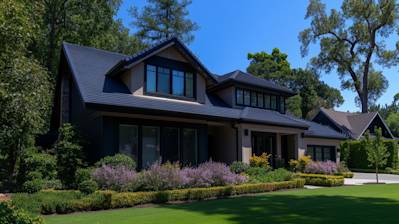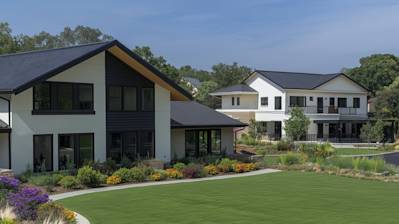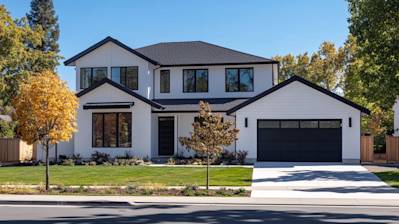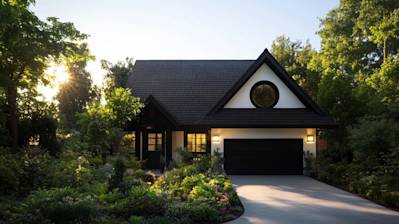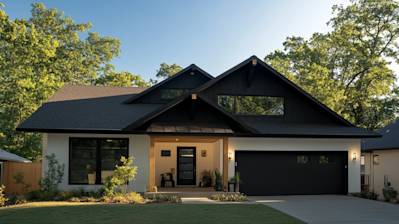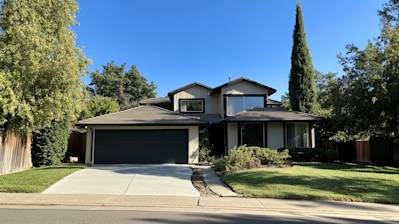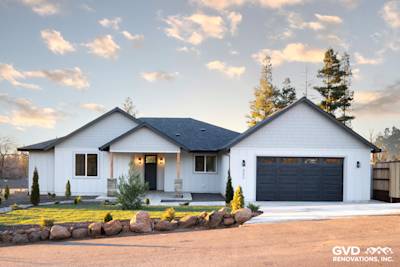PVC Roofing Membrane is an advanced roofing solution widely used in commercial, residential, and industrial buildings due to its resistance, durability, and flexibility. In this article, we'll delve deep into the world of PVC Roofing Membrane, exploring its attributes, benefits, application process, and maintenance instructions.
Contextualizing PVC as a Roofing Material
Polyvinic Chloride, popularly known as PVC, is a plastic fabric widely used in construction and industrial applications. This synthetic material has become a preferred roofing solution, thanks to its robust properties and long-term performance value. PVC roofing membrane is not new in the market — it has been around for over 40 years, primarily on flat and low-sloped roofs.
What Makes PVC Roofing Membrane Stand Out
Here are unique properties that distinguish PVC roofing membrane:
- Weather Resistance: PVC can withstand fluctuating weather conditions, including hail, strong winds, and heavy rainfall.
- Longer Lifespan: With proper maintenance, PVC roofing can serve you for a span of 20 to 30 years.
- Cost-Effective: With its superior durability and minimal maintenance requirements, PVC roofing membrane is a cost-effective solution in the long run.
- Fire Resistant: PVC is self-extinguishing, thus it reduces the risk of fire spreading.
- Eco-Friendly: PVC roofs are recyclable post their service life.
The Intricacies of Installing the PVC Roofing Membrane
While it might seem like a challenging task, installing PVC roofing membranes is straightforward when carried out by skilled professionals.
Preparation
This first step involves cleaning the rooftop surface to clear away any debris. Precautions are taken to ensure that there are no sharp objects that could potentially damage the membrane.
Laying Down the Membranes
Skilled technicians accurately measure and cut the PVC membrane to fit the roof. It's laid down to encompass the roof entirely, taking special care around corners and edges.
Securing the Membrane
Securing the membrane is done in two ways, either mechanically attaching it to the roof or fully adhering the membrane using specialized adhesives. In commercial or industrial constructions, the former method is more prevalent.
The Importance of Maintaining a PVC Roof
PVC roofing membrane, despite its numerous benefits, may be subject to damage over time. However, with regular maintenance and inspections, you can maximize the solvency of your roof. There are several steps involved in keeping a PVC roof in top shape.
- Regular Inspection: Regular professional check-ups can help catch any issues at an early stage, protecting the life-span of the roof.
- Immediate Repairs: Any minor damages or leaks that pop up during inspections should be immediately repaired to prevent further damage.
- Cleaning: Using a broom or low-pressure water hose, keep your PVC roof clean to enhance its longevity and aesthetic appeal.
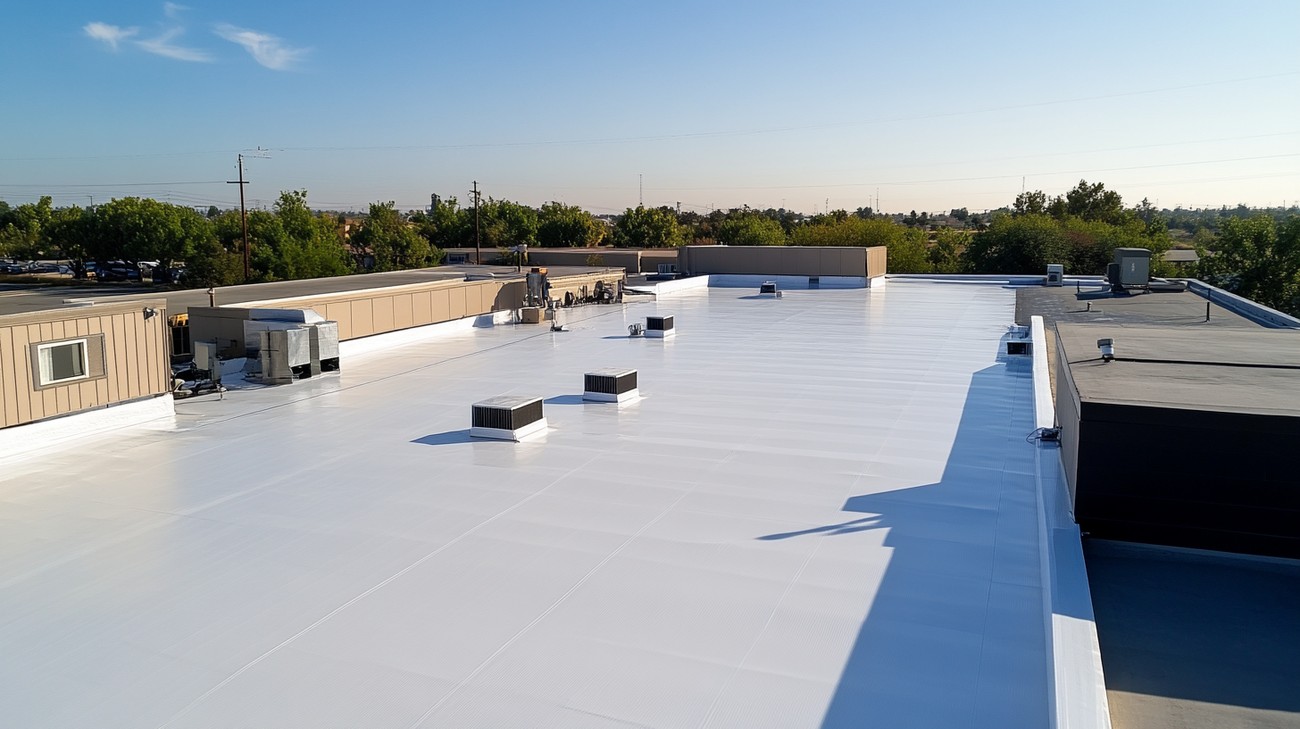
Frequently Asked Questions about Pvc Roofing Membrane
How Long Does PVC Roofing Membrane last?
Typically, with proper installation and maintenance, PVC Roofing Membrane can last up to 20 years or more. This is, however, influenced by various factors such as climate, level of maintenance, and how it was installed. It's also worth mentioning that the membrane can reflect sunlight to reduce cooling costs which, in turn, helps to extend its lifespan by reducing the wear and tear that extreme temperatures can inflict on roofing materials.
What Color Options are there for PVC Roofing Membrane?
PVC Roofing Membrane commonly comes in white, which is highly reflective and contributes substantially toward cooling. However, manufacturers offer a variety of colours for aesthetic versatility, including grey, tan, and even custom colours. It's important to note, however, that lighter colours tend to have higher reflectivity, which can contribute to energy savings.
How Weather Resistant is PVC Roofing Membrane?
PVC Roofing Membrane is known for its excellent weather resistance. The membrane performs extremely well under various external conditions such as rain, snow, strong winds, and even fire. The PVC layers make it waterproof, and the material is able to withstand hailstorms without any significant damage.
Can PVC Roofing Membrane be Installed Over an Existing Roof?
A PVC Roof can be installed over an existing roof, although this will depend on the condition of your present roof and local building regulations. If your current roof is in good shape and code permits, a PVC roof can be installed directly on top. However, if the existing roof is damaged, a complete tear-off and fresh installation would be the most ideal course of action.
How is PVC Roofing Membrane Installed?
The process of installing a PVC roof involves laying down the PVC roofing sheets and adhering them together to create a waterproof, durable surface. The specifics may vary depending on the manufacturer and type of roof, but the main methods include the use of heat welding or adhesive to bond the membrane seams.
How Sustainable is PVC Roofing Membrane?
PVC Roofing Membrane, despite being a plastic product, is regarded as a green roofing option. This is because it's highly energy efficient due to its highly reflective surface, which can substantially reduce cooling costs. Moreover, manufacturers often offer PVC membranes that are made from recycled materials, increasing their overall sustainability.
How Much Does a PVC Roofing Membrane Cost?
The cost of PVC Roofing Membrane varies based on the thickness and quality of the membrane, the HVAC loads of the building, the ease of roof access, and other factors. Thus, it's better to get a detailed estimate from your roofing contractor to have an accurate idea of the cost based on your individual needs and circumstances.

PROS OF PVC ROOFING MEMBRANE
Durability
Longevity
PVC roofing membranes are known for their durability, with many being able to last up to 30 years or more with minimal maintenance. This makes them a cost-effective choice in the long run, especially when compared to cheaper roofing options that may need to be replaced more frequently.
Resistance to Environmental Factors
PVC roofing has excellent resistance to environmental factors. The material is highly resistant to UV radiation, making it suitable for regions with high sun exposure. Furthermore, PVC roofing performs exceptionally well in high wind conditions. Its wind uplift resistance capacity makes it the go-to option for areas prone to hurricanes and heavy storms.
Versatility
The flexibility of PVC roofing membranes allows them to adapt to any roof shape. Whether your roof is flat, low-sloped, or has multiple penetrations, PVC membranes can be used effectively.
Fire Resistance
A distinctive trait of PVC roofing is its fire resistance. PVC roofing membranes are very difficult to ignite and will self-extinguish when the source of the flame is removed.
Energy Efficiency
A PVC roof's ability to reflect sunlight instead of absorbing it, results in a significant reduction in cooling costs for the building. This can lead to substantial savings, particularly in hotter climates.
Environmentally Friendly
As opposed to other roofing options, PVC membranes are recyclable. End-of-life PVC can be mechanically recycled to produce new roofing membranes.
CONS OF PVC ROOFING MEMBRANE
Initial Cost
Higher Up-front Cost
PVC roofing comes with a higher initial cost when compared to some of the other roofing options. This could be a considerable setback for some homeowners and businesses.
Installation Process
Requirement for Skilled Labor
Installation of PVC roofing membranes requires skilled labor to properly seal the seams. Improper installation can lead to a host of problems ranging from leaks to a complete failure of the system.
Chemical Exposure
Potential Harm to the Environment
While they are recyclable, the manufacturing process of PVC roofing membranes does involve the release of harmful chemicals.
Durability
Issues with Seams
The seams of PVC roofing, where separate sheets of the material are welded together, can be a point of weakness. Over time and under certain conditions, these seams can start to come apart, leading to leaks or further damage.
Temperatures Impact
Different temperatures can impact the performance of PVC roofing. In extremely cold temperatures, PVC roofing can become less flexible, which could make it more vulnerable to cracks and leaks.
Compatibility
A notable drawback of PVC roofing is its incompatibility with some materials, including asphalt-based products. This means additional care is needed when installing a PVC roof to ensure that it does not come into contact with incompatible materials, as this could cause it to degrade prematurely.
Shrinkage
Over time, PVC roofing membranes are known to shrink. This can lead to a pulling effect at the corners and flashings, eventually causing the membrane to crack or pull away from the roof's edge. This puts the roof at higher risk for leaks and requires additional maintenance to keep the roofing effective.

Myths and Misconceptions about PVC Roofing Membrane
PVC roofing membranes have become a preferred choice for many commercial and residential buildings due to their durability, energy efficiency and ease of installation. Despite this, several misconceptions and myths about PVC roofing continue to circulate. In this comprehensive section, we’ll debunk these myths to provide you with accurate information about PVC roofing membranes.
Myth 1: PVC Roofing Membranes are not Environmentally Friendly
Often, the manufacturing process of PVC roofing is misunderstood, leading to the belief that PVC roofing is not environmentally friendly.
Truth
Contrary to this misconception, the manufacture of PVC roofing membranes is actually much safer and cleaner compared to many other synthetic roofing materials. Additionally, PVC roofing membranes are recyclable and they have a life expectancy of over 20 years, which significantly reduces their environmental impact.
Myth 2: PVC is Prone to Cracking and Splitting
There are some views that PVC roofing membranes are prone to cracking and splitting especially in places with extreme temperatures.
Truth
Today's PVC membranes are manufactured with advanced technology and include additives that increase their flexibility and resistance to cracking and splitting, even in extreme temperatures. Regular maintenance and inspections can also help to identify and repair minor damages before they become significant.
Myth 3: PVC Membranes are not Fire Resistant
Another popular myth is that PVC roofing membranes are not fire resistant and therefore increase the risk of fire.
Truth
PVC roofing membranes are in fact highly resistant to fire. They are designed to self-extinguish once the source of a fire is removed. This contributes significantly to their safety profile, especially in commercial settings where fire resistance is a key consideration.
Myth 4: PVC Roofing Membranes are Costly
Some people believe that PVC roofing is an expensive roofing option compared to other roofing materials like TPO and EPDM.
Truth
While the initial cost for PVC roofing materials may be higher, the long-term costs are often significantly lower. This is due to the roofing's superior durability, which leads to lower maintenance costs, and its energy efficiency, which helps lower heating and cooling costs.
Myth 5: PVC Membranes are Difficult to Install
It is sometimes said that PVC membranes are difficult and time-consuming to install.
Truth
In fact, PVC roofing is one of the easier types of roofing to install. Flexible and lightweight, PVC membranes can be customized to fit intricate roof designs with ease. It can also be installed in various weather conditions without compromising its performance or durability.
Myth 6: PVC Membranes are Noisy During Rain
A common misconception is that PVC roofing is noisy during rainfall, which can disturb activities within the building.
Truth
Noise levels from rainfall are actually more dependent on the roof's insulation and the structural design of the building, rather than the material of the roof. Properly installed PVC roofing with adequate insulation should not create bothersome noise levels during rainfall.
Understanding these myths and misconceptions goes a long way in making informed decisions whenever you're considering the best roofing membrane for your project. It's crucial to consult with professional roofers who have a deep understanding of PVC roofing membranes to ensure efficient and effective installation.
Summary
So there you have it, the PVC Roofing Membrane has its advantages that could make it a great roofing option for commercial or even residential structures. Its durability and resistance to punctures, wind, and fire make it a go-to choice for many. Despite some drawbacks like its environmental impact and overtime discoloration, these membranes can last for years with proper maintenance.
Let's not forget the energy efficiency it offers too, thanks to its cool roofing properties. Choosing PVC roofing membrane could mean spending less on energy, which is not only good for your pockets but the environment as well. So next time you're looking into roofing options, don't discount PVC just yet.
At the end of the day, making the decision to go for a PVC roofing membrane is dependent on a variety of factors. It's always crucial to weigh its pros and cons, balance the initial investment against the maintenance cost and lifespan, and of course, consider the specifics of your building. It may not be perfect, but PVC roofing membrane could just be the one for you.
About GVD Renovations & Remodeling
About GVD Renovations & Remodeling
Hello there! We are GVD Renovations & Remodeling, a homegrown business right from the heart of Roseville, CA. With a keen emphasis on quality and precision, we've been transforming homes for the last few decades with unmatched craftsmanship. We specialize in home, bathroom, and kitchen renovations and are delighted to help you create your dream space, weather it's a cozy cottage feel or a sleek, modern vibe. Your visions and desires are at the forefront of our work and we're committed to making them a reality. As your neighborhood renovation experts, we believe in giving back to the community that's been our home and keeping it as beautiful as ever. Let us help you love your home even more!
Tags: roofing, PVC, waterproofing,

